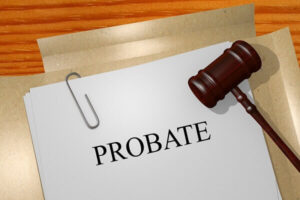 If you are like most who are starting out with estate planning, you have heard of probate court – and you know that you want to do what you can to avoid it. What you might not have heard about is an ancillary probate. Ancillary probate is a secondary probate for your estate when you own property in another state.
If you are like most who are starting out with estate planning, you have heard of probate court – and you know that you want to do what you can to avoid it. What you might not have heard about is an ancillary probate. Ancillary probate is a secondary probate for your estate when you own property in another state.
Loved ones must endure the costs and hassles of a formal probate court. But adding on the hassles of ancillary probate can be even more taxing.
Two probates happen when you have out-of-state real estate because real estate is governed in the state where it is located – regardless of where you reside.
When Would a Plainview Resident Have Ancillary Probate?
Second probate court proceedings happen when you own real estate or tangible property outside of New York. For example, you have a New York primary residence but also a Florida condo you use in the winter.
Realize that ancillary probate is not just a vacation home or secondary residence. It can also involve tangible property. For example, you own a plot of land without any buildings on it in Montana. Another reason for ancillary will be if you own mineral rights out of state.
Your New York probate court would handle all property in New York, but any property outside of New York would require ancillary probate. When you own multiple properties or tangible properties out of state, each state would have probate proceedings for those pieces of real estate.
The Process for Ancillary Probate
First, the domiciliary probate process initiates. This occurs when the decedent’s state recognizes the will, and the executor starts the probate proceeding.
In some cases, the executor may also initiate the ancillary probate.
Any challenges to the estate plan are done in the domiciliary state’s probate court. Once the court admits the will, the ancillary states follow.
The process varies by state, but the process of ancillary probate is shorter than formal probate. Some states even offer streamlined ancillary probate processes, including allowances for foreign executors (an executor residing in another state). By doing so, the foreign executor can take control of the property and transfer, sell, or manage it by the instructions of the will.
The Negative Impact of Ancillary Probate
It is better to avoid ancillary probate because, like formal probate processes, there are consequences to going through the process.
One of the most significant consequences is the cost. It is costly enough to administer an estate in one state, but two states with two probates is expensive. Beneficiaries will not only endure the time of both courts, but also endure multiple court fees, attorney’s fees, and accounting costs.
If the deceased passes intestate (meaning they have no valid will), the intestacy laws of that state determine how the property will be handled. Every state is different with how they handle property if there is no will. Rightful heirs of the intestate estate may find that the property is dealt with differently in the other state – and not always favorable to them.
How to Avoid Ancillary Probate Entirely
Probate is not necessary for real estate in your domicile state let alone property out of state. With a trust, you can avoid probate entirely. With a living trust, your property is passed directly to your beneficiaries.
To do this, you would put the title of your out-of-state property and any in-state property into the trust. By doing so, the trust now owns the property (not you). Upon your death, the trustee would then distribute assets from the trust by the trust rules.
Using a living trust is the most common method for avoiding probate in both states. If you don’t want to use a living trust, you may also be able to:
- Own the property with another person: Owning the property with another person opens the door to joint tenancy, which means the property would pass to the other owner upon death.
- Transfer-on-Death deed: A transfer on death deed (TOD) transfers real estate upon death. You must record it and file it with the local records office for it to be valid. Note that not all states allow a TOD. New York, for example, does not allow TODs. Therefore, if your ancillary property is in New York, you would not be able to use this method for avoiding ancillary probate.
All of these options might work for your estate, but it is best that you consult with an attorney. Depending on your estate’s size, assets, and beneficiaries, some options for avoiding ancillary probate may not work for you.
Consult with an Attorney Regarding Your Ancillary Property and Possible Probate
If you have an out-of-state property you use as a vacation home, rental property, or you own mineral rights in another state, protect these assets by meeting with an attorney and drafting an estate plan that addresses the unique issues these properties create.
You can still protect your loved ones and avoid ancillary probate. To explore your options, speak with an attorney by calling the Law Offices of Andrew M. Lamkin, P.C.
During your free consultation, we can go over each option, discuss the pros and cons of your estate going through ancillary probate, and draft an estate plan that protects your long-term care needs and provides for your loved ones when the time comes.
Schedule your meeting today by calling 516-605-0625 or request more information online.



